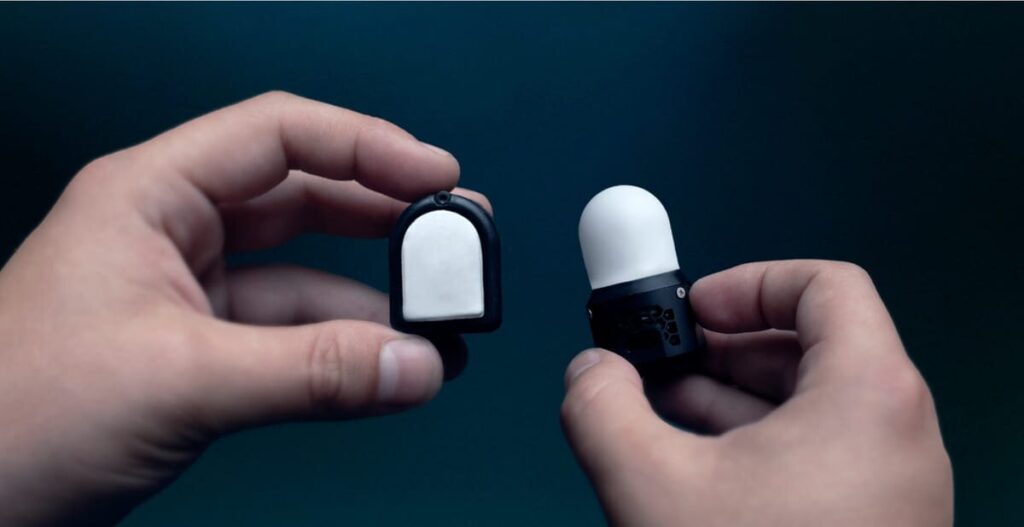In a groundbreaking move poised to reshape the future of robotics, Meta is spearheading a shift towards embodied AI by equipping robots with a sense of touch and feel. Through strategic collaborations with tactile pioneers GelSight and South Korean company Wonik Robotics, Meta aims to bring forth a new era of tactile sensors, marking a significant leap in how AI interacts with the physical world. Central to Meta’s vision is the notion that robots must transcend mere mechanical task execution to engage their environments with the sensitivity and perceptiveness akin to human touch.
A suite of innovative technologies stands at the forefront of this endeavor, notably including Meta Sparsh, Meta Digit 360, and Meta Digit Plexus. Leading the charge is the Meta Digit 360, a remarkable tactile sensor shaped like a fingertip, designed to capture touch data with unprecedented human-level precision. Manufactured by GelSight, known for its advancements in tactile intelligence, the Digit 360 opens new avenues for AI researchers to model object interactions and enhance the efficacy of human-robot collaboration.
Historically, AI systems have faced a blind spot in physical interactions due to the lack of a nuanced sense of touch—a gap Meta aims to fill with the Digit 360. The sensor boasts 18 sensing features capable of detecting even the smallest deformations, like the subtle flex of a tennis ball or the precise prick of a needle, with remarkable sensitivity. With an optical lens sensitive to forces as minimal as 1 millinewton and detailing down to 7 microns, the Digit 360 signifies a transformative leap in robotic perception and interaction.
In a design inspired by biological reflex arcs, Digit 360 embeds on-device AI that processes tactile information swiftly and locally. This design mimics human reflexes, enabling the sensor’s rapid responsiveness to diverse stimuli. Such capabilities promise vast applications in robotics, empowering AI with touch responsiveness that mirrors human interaction, paving the way for more intuitive and adaptable machines.
In collaboration with GelSight, Meta is set to roll out Digit 360 to the global research community next year. While robotics remains its primary domain, the sensor’s potential extends into diverse fields such as medicine, prosthetics, virtual reality, and telepresence. Imagine virtual environments where users interact not just visually but with digitized touch, providing a tangible experience of object properties.
Meta Digit Plexus adds another layer, integrating tactile sensors with robotic systems, akin to how touch influences human motor responses. This hardware-software platform facilitates real-time adaptations in robot hands, allowing nuanced decisions on how to grasp or manipulate objects. By incorporating tools like the Digit 360, Meta strives to achieve a level of detail and affinity in robot interactions currently beyond reach.
Collaborating with Wonik Robotics, Meta is embedding these technologies into the next Allegro Hand, a pioneering robotic hand featuring tactile sensors from the Digit Plexus system. Set for release next year, the Allegro Hand will provide researchers with a cutting-edge tool for developing robots capable of intricate tasks, from component assembly to critical healthcare operations.
Meta’s ambition extends beyond tactile sensations; it envisions creating AI agents that act as competent partners in daily human activities. To that end, the introduction of the PARTNR benchmark offers a standardized framework for testing robot planning and reasoning in collaborative settings. PARTNR allows the evaluation of AI across a staggering range of 100,000 tasks mimicking household activities, providing a path for developing robots into collaborative partners, adept at executing complex tasks while grasping human nuances.
Enhancing this vision is Habitat 3.0, a high-speed simulator enabling researchers to train AI models in realistic, home-like environments. By facilitating large-scale assessments of human-robot collaboration without safety risks, Habitat 3.0 aims to transform AI from simple agents to symbiotic partners ingrained with human-like dynamics.
Bridging the digital and physical realms, Meta’s investments in tactile sensing and dexterous robots promise a future where AI transcends content generation, engaging in authentic, human-like interactions. Industries such as healthcare, manufacturing, and logistics stand to benefit immensely, envisaging scenarios where robots assist surgeons with precision or manage supply chains with tactile finesse.
Beyond industrial applications, these technologies herald a new era in consumer experiences, from virtual textures in gaming to authentic online shopping interactions. They could revolutionize prosthetics, offering users a more natural and responsive interface with the world.
Youssef Benmokhtar, CEO of GelSight, encapsulates this vision, aspiring to make tactile sensing ubiquitous and accessible. As Meta continues to push the boundaries of what robots can feel and do, it is leading a paradigm shift poised to integrate AI seamlessly into our everyday lives. Through this revolutionary initiative, Meta is not just imagining a future where robots “feel”—it is building it.


